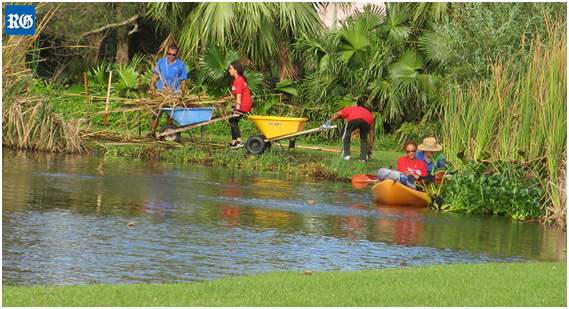Recent News
GIR donates to Bermuda Turtle ProjectThursday, December 14, 2017
A reinsurance company has donated $12,500 to the Bermuda Turtle Project.
Global Indemnity Donate $12.5K To Turtle Project
Monday, December 11, 2017
Global Indemnity Re has donated $12,500 in support of the 50th anniversary of the Bermuda Turtle Project.
Parks legislation modernised
Monday, November 27, 2017
Amendments to modernise National Parks legislation — and related fees — have been approved by MPs.
Vet’s legacy reveals the wonders of the deep
Friday, November 24, 2017
Young children with little or no swimming experience will be introduced to “the wonders of the ocean” thanks to another Neil Burnie Foundation fundraiser.
What a catch!
Wednesday, November 15, 2017
Rare fish sighting!
About
GovernanceAbout Us
Newsletter
Latest News
Gift & Bookstore
Contact
General Inquiries
info@bzs.bm
Latest News
All the latest updates and news from the Bermuda Aquarium, Museum, and Zoo, one of Bermuda's leading visitor attractions!
Jonathan Bell
Published Jan 16, 2018 at 8:00 am (Updated Jan 16, 2018 at 6:41 am)

HSBC volunteers help a Bermuda Zoological society team clean up
Cloverdale Pond in Smith's (Photograph supplied)
Two ponds have been cleaned up courtesy of an island conservation programme.
Cloverdale Pond in Smith’s and Southampton’s Evan’s Pond, a refuge for endangered species, were improved through the Bermuda Zoological Society’s wetlands remediation programme.
The scheme, which became the HSBC global water programme for Bermuda in 2014, was designed to remove toxic petroleum compounds from ponds.
The build-up of the poisonous hydrocarbons is a threat to the island’s two endemic killifish species, as well as native diamondback terrapins, which are a protected species.
The compounds, which come from oil, water runoff and vehicle exhausts, can be broken down by bacteria when the pond sediments are aerated.
The two-year grant from HSBC allowed the proposal to be tested in the field.
Volunteers also took part, with help from the Department of Environment and Natural Resources.
The BZS said Cloverdale was chosen first because of its small size, its “known severe effects on wildlife” and the absence of protected species in the water.
Evan’s Pond was selected as the second test site because of its small population of killifish.
The ponds were divided into sections and aerated for six to eight hours a day with solar powered compressors.
Hydrocarbon levels saw a major reduction over the course of a year.
The next site for remediation is the South Pond at the Mid Ocean golf course, where the hatching of diamondback terrapins has been hampered by pollution.


